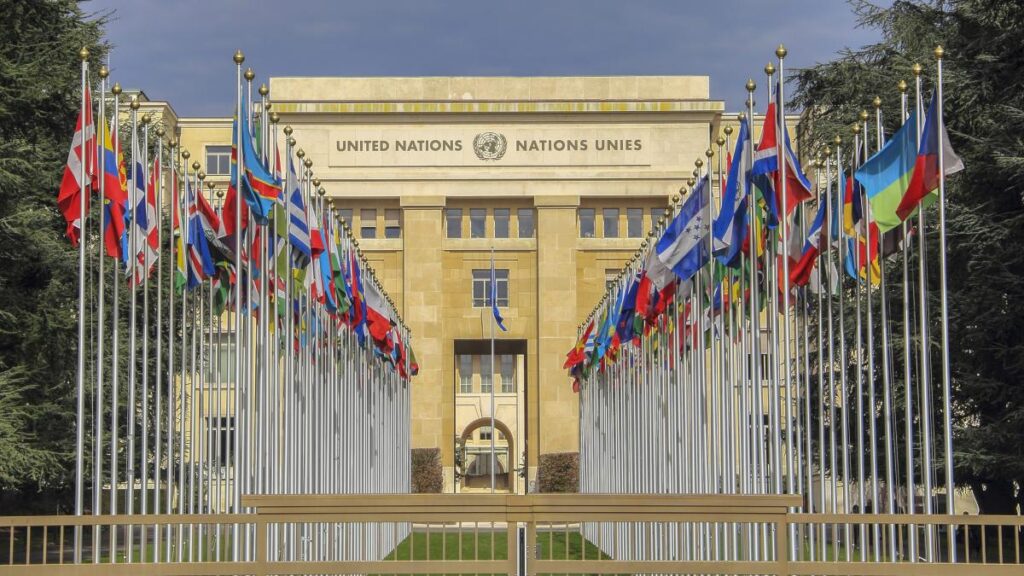Foundations For Pro-development Digital Governance Framework in Africa
Today, the increasing value of digitalisation and data to global development has received widespread attention. A great number of structural transformations have been driven by means of digital technologies. Digital technology has provided a marked boost to world economic output and created innumerable jobs. Following the recent COVID-19 disruption on the global scene, many other developmental impacts that digitalisation can perform have actually come to the fore. Data, the resource that drives digitalisation, has been figuratively described as ‘the new oil’, and its commoditisation necessitates a reliable data governance framework to make it retain its value. Data governance has the potential to enhance data value, as well as safeguard data-related harms/threats.
The big platform-based firms, regarded as ‘Big Tech’ monopolies that are established in Europe, the United States and China have dominated the global digital market space and their data governance models are defining modalities for interaction and trade in the digital space. For example, most African countries have modelled their respective national standards of data protection after the EU’s General Data Protection Regulation (GDPR). Consequently, the presence of these dominant players has made the global digital economy imperfect, as they tend to reap the most benefits from the digital economy, leaving less for developing economies like Africa. This imperfection has the potential to limit the gains to Africa from digitalization. Its digital economy is imperilled by highly worrisome threats which are causing a crisis of trust in the digital space.
- Africa’s efforts in the fast-rising global digitalisation era
There is obviously no gainsaying that Europe, the US and China, as formidable digital governance models, have each made their mark in the global digital economy. Data, in the hands of these digital economy tsars, has been utilised for multidimensional purposes, such that it is now crystal clear that the use of data does not have implications, only for trade and economic development but also for human rights, peace and security. These nations’ approaches to governing the digital economy, and the regulatory frameworks developed by them to manage cross-border data flows truly distinguish them as the digital economies to beat. On its own, the United States, has an innovative entrepreneurship approach which promotes the private market-driven initiative in the global digital market. Through its liberal regulatory framework for cross-border data flows, the United States has succeeded, quite remarkably, in bringing about far-reaching innovations which have enabled it to maintain its leadership position in the global digital market. While China has a sophisticated blend of both security-oriented and digital development-oriented approaches, the European Union has human rights-oriented approach. While still building a multilateral support for its data governance model, the EU has demonstrated commitment towards championing the cause of digital justice for the victims of digital harm. One amazing outcome of this initiative is the mitigation, to some extent, of the risk of abuse and misuse of data in the digital space.
Notwithstanding the giant strides which these digital governance models have taken in their respective approaches to digital economy, each of them (the models) is not without its shortcomings, which is why Africa needs to look beyond patterning its own digital economy approach after any of them. Basically, each of these models, in its manner of approach, reflects the contextual peculiarities of its economy. If not properly controlled, the United States’ free-market approach that Africa has been trying to replicate, will remain a wind that blows no economic good. For example, Africa has yet to develop a strong data governance framework capable of ending the current digital market inequality, whereby private companies and platforms enter the digital market and reap all the economic gains of the data economy, with little or no constraints. This type of development has made the African digital market susceptible to a wide range of threats and poor competition which are the bane of the continent’s long overdue structural transformation. So, for Africa to emerge as a digital market leader, it must do its best to look inwards. For instance, there is a domestically unique way in which Africa can coordinate the private sector for strategic expansion in the digital space. It is crucial for the continent to channel its data governance pillars towards supporting local or domestic experimentation of ideas that will essentially drive its digital transformation. The truth is, Africa can leverage its enviable status as a champion of mobile technology to harness the potential of digitalisation for its economic transformation.
- Africa’s steps towards being digitally governed
Africa needs to steer its states towards addressing, very thoughtfully, the issue of data protection legislation. Each of these states, in its own space, must demonstrate unflagging commitment towards enacting data protection and privacy laws which would regulate its domestic digital market. Data, as the ‘new oil’, must be effectively commoditised by the means of a well-thought-out and context-sensitive regulatory framework for its values to be unlocked in each state and, by extension, Africa. If the commoditisation of data is not effectively regulated by laid down laws, there are bound to be unhealthy outcomes. But how can effectively regulated commoditisation of data be ensured when there are still many African states that have yet to pass their respective data protection laws and regulations? The truth is that, for the African continent to have very strong data protection, all policymakers and the private sector in each African state must, collectively work together. There must be collaborative efforts between them to create regulations and put in place measures to ensure compliance with such regulations. In this regard, regulatory agencies need to be set up and empowered to discharge their statutory duties very efficiently. In addition, data policies which can guarantee best practices in the business of generating, storing and using data should be formulated, as well as well-monitored mechanisms for implementing these policies
Furthermore, African states must support the African Union (AU), the umbrella body for all African states, in its concerted efforts towards facilitating trust in the digital space, promoting regional digitalization and accelerating the achievement of the African Continent Free Trade Area (AfCFTA). Another impediment to the continent’s economic transformation , is the crisis of trust in the African digital space. As the strategic institutionalisation of intra-regional trade in Africa, AFCFTA necessitates the development of an effective regional data governance framework. In the few African states where efforts have been made to enact a legislation/legal framework for data protection and privacy, the implementation of such legislations appears to be disparate, lacking a unified approach. Suffice it to say that Africa as a region has yet to produce a centralized data legislation which generally supports the concept of data protection in all states. While the AU Malabo Convention on Cyber Security and Personal Data Protection (the comprehensive document which covers electronic transactions, privacy, and cyber security) promises to bridge this gap, the ratification of the outcomes of the Convention has not been fully achieved by the required number of states.
- Conclusion
African digital transformation is a catalyst for sustainable regional growth and development. The time for the continent to rise above the tide of economic backwardness, technological obscurity and digital inequality is overdue. Africa needs digital transformation which will grow economies, improve service delivery and produce jobs and incomes for human survival. To improve digital revolution and inclusion, the necessary environment must be created. This development would stimulate organisations, businesses, institutions, and governments to move their operations, processes and practices to the digital space. When digital technologies are exclusively utilised to guarantee the provision of products and services, the expansion of existing services, generation of revenues and exploitation of opportunities for all, achieving transformation becomes seamless. To make all these possible, all African digital economy stakeholders and change-makers must create the change needed for digital transformation to occur.
This blog was written by Kunle Balogun


 English
English
 Arab
Arab
 Deutsch
Deutsch
 Português
Português
 China
China




